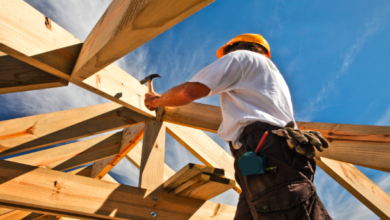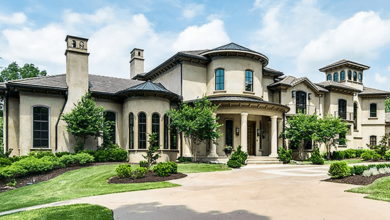Do You Need a Home Electrical Inspector in House Wiring? (Hint: YES!)

Flip a light switch in your home, and the room will illuminate instantly. Plug in your phone charger, and it will power up.
Most people take their electrical systems for granted, expecting electricity to flow smoothly throughout their houses. However, achieving that level of convenient and safe power delivery requires proper initial installation following safety codes.
That’s where your local electrical inspector steps in during new home construction, helping ensure the electrical work keeps you and your family protected.
Who Are Electrical Inspectors? Why Do You Need Them?
Electrical inspectors are licensed professionals who review wiring and equipment installations in newly built homes. They thoroughly check that:
●All electrical components properly meet both state and local safety standards before the drywall goes up
●Any visible wiring throughout the home safely and neatly delivers power everywhere required
●Mandated safety features like circuit breakers and surge protectors are correctly put in place
●There are no obvious fire or shock dangers that could threaten homeowners
Essentially, electrical inspectors provide a detailed final verification that the full electrical system works according to plan without risks.
So why are these reviews so vital?
Faulty electrical work in lighting, wiring, plugs, and cords causes over 32,000 house fires across the United States every year, leading to property and life loss.
The majority of these fires are caused by dangerous deficiencies, such as loose wire connections, incorrectly rated components, or overloaded circuits.
These types of hazards can be identified and corrected in a timely by having an experienced third-party electrical inspector evaluate your full home wiring before you move in.
Their assessment gives you assurance everything has been installed properly to deliver electricity throughout the house safely.
How Much Will an Electrical Inspection Cost Me?
Typical residential electrical inspection fees range from $100-$200. Check with inspectors in your area, for example, St. Louis electricians or ones in New Orleans, for specific rates. Cost varies based on house size.
When Does an Electrical Inspector Evaluate the Wiring?
For new home-building projects, the electrical inspector is involved at two key checkpoints:
Initial “Rough-In” Review
The rough-in inspection happens when the initial wiring work has been finished throughout the house before drywall installation. At this stage, the inspector looks closely at:
- Wire gauge sizes used and whether they are rated for their installed locations
- Connections to ensure they are tight and use the proper methods
- Overall wire routing checking that protection prevents accidental damage
- Grounding to guarantee effective shock mitigation
- Placement of all boxes and conduit for code compliance
Catching any issues during the rough-in inspection saves more time and money than after the fact. Once wiring gets covered up behind drywall, remediation becomes much more disruptive and costly.
Final Safety Validation
The last review comes once full construction wraps up. Now, with lighting, switches, and outlets installed, the inspector:
- Checks all electrical components activate smoothly without faults
- Verifies wiring remains undamaged in the visible sections
- Ensures mandated safety elements like GFCIs near water sources are correctly in place
- Validates the full suite of circuit breaker capacities can handle household needs
Only after the electrical inspector fully signs off that everything meets requirements, is the local building authority notified for the home to become occupied.
Top 5 Aspects a Home Electrical Inspector Evaluates
When conducting a full safety inspection, competent electrical inspectors dig into many facets covering both the visibility and expected performance of wiring and connected equipment.
Here are five of the most important aspects on their checklist:
- Wire Selection and Routing
●Are standard wire size ratings adequate for their installed locations, considering the expected electrical load?
●Does wiring take the most sensible pathways without unnecessary risk of physical damage? - Connections and Junctions
●Do all wires properly link up using suitable connector types for that application?
●Are junction boxes conveniently accessible but out of the way of potential harm? - Electrical Service Capacity
●Can the main service panel reliably deliver ample power for household needs via the utility drop?
●Do overcurrent protective devices provide effective shutdown in the event of large surges? - Outlet and Lighting Placement
●Are receptacles adequately spaced no more than 12 feet apart on each wall to avoid overloading?
●Do switches activate lighting circuits as intended after verifying fixture connectivity? - Mandated Safety Elements
●Are GFCI (Ground Fault Circuit Interrupter) outlets installed near water sources like kitchens and bathrooms?
●Does hardwired smoke detector wiring have battery backup functionality in the event of a power outage?
Thoroughly inspecting against criteria like these ensures your home’s wiring meets stringent safety standards, reducing electrical fire or shock risks.
How Homeowners Can Work More Effectively With Electrical Inspectors?
Open communication between homeowners and electrical inspectors enables a smoother review process.
Here are four useful tips:
- Introduce yourself early on and exchange contact information for easy discussions
- Research local permit processes beforehand so paperwork doesn’t cause delays
- Ask questions to comprehend the risks found rather than automatically disputing them
- Involve all responsible trades proactively for remedy scoping
Think of inspectors as extra assistants safeguarding you rather than roadblocks just trying to slow things down.
As highlighted in these tips, their objective eye and safety knowledge can enhance home electrical performance, which is critical, especially for new homeowners.
While not a glitzy profession, electrical inspectors, along with electronic manufacturing services (EMS), provide vital protective oversight across millions of houses year after year.
They reduce the dangers of fires, shocks, and electrocutions from faulty wiring by thoroughly checking code compliance and installations. These guardian inspectors deserve appreciation for their life-saving benefit to homeowners.
FAQ
What certifications should home electrical inspectors have?
Most areas require certification from either the International Association of Electrical Inspectors (IAEI) or the International Code Council (ICC). This validates comprehensive training on various electrical codes and standards.
What if something fails the electrical inspection?
Your licensed electrician will be responsible for fixing any deficient wiring issues before another inspection occurs to verify the corrections. Most problems found are minor and reasonably easy to remedy.
Final Thoughts
So, now you know why you need a home electrical inspector for house wiring. We hope that all your electrical work is done without accidents and under the supervision of a seasoned professional





